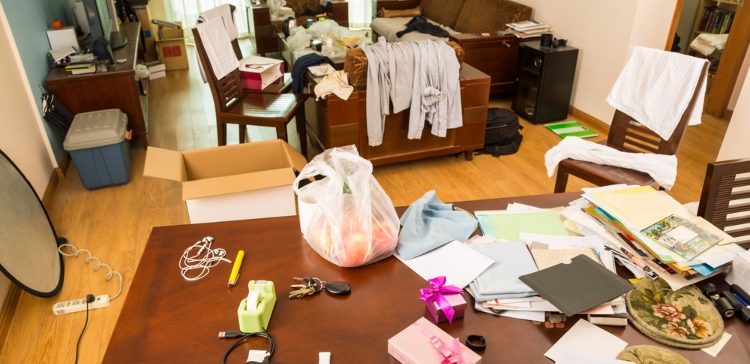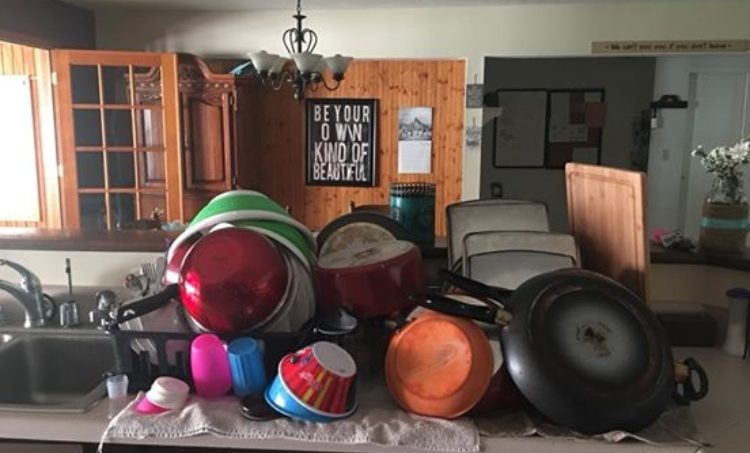My mom was definitely a big neat freak. Growing up with her meant that everything had to be in place and neat at all times — which of course meant extra chores and loads of cleaning for me and my sisters.
Naturally, as children, we thought this was most annoying and we often did everything we could to get away with not making our bed, washing dishes, or clearing the table after dinner.
But, as I’ve grown up, I gradually realized that I have definitely inherited my mom’s ‘neat freak-edness’. It’s super crucial that my home be in order at all times. “Everything in my home has a home” I tend to say today, meaning every item I own has its designated ‘resting place.’
I realized that without this, I feel overwhelmed and can’t think straight. And it turns out there’s science behind it.
Studies highlighted in the book Life at Home in the 21st Century: 32 Families Open Their Doors, have revealed that individuals, and women in particular, who live in a cluttered home have higher levels of stress hormones, the same type that contributes to depression.
According to psychiatrist Dr. Audrey Sherman, there is a link between a cluttered environment and depression. She says that disorganization and chaos is “the biggest problems to be reported by depressed individuals.”
“Emotional baggage has a way of building up then expressing itself in an outward display of turmoil,” the psychiatrist writes.

This means that living, working, and even driving in cluttered spaces can keep one away from mental health. In fact, it’s possible that the chaos surrounding an individual is the cause of a deteriorated mental health in the first place.
The link is thus clear: clutter leads to stress, and vice versa. And, the more clutter and messy your environment becomes, the more difficult it becomes to step in and do something about it. So many unable to deal with this sink deeper and deeper into their messy environment — until it seems impossible to get out of it.
This brings about heightened sensations of stress, anxiety, depression or may simply have you feeling overwhelmed.
Improve Your Life: Declutter
Experts recommend decluttering your environment as soon as possible to see positive mental health improvement.
Here are some good tips on what you can do if you find all this all-too-familiar:
- Donate or throw out unnecessary items, including items you have not used in the past 6 months;
- Know the difference between ‘trash’ and ‘treasure’ — only keep things around you that elicit positive memories;
- Organize your home in a way that it is a welcome place for guests;
- Only keep things that you currently need in your immediate space and place the rest in storage;
- Shop smart: don’t accumulate more unnecessary items that will only contribute to more clutter.
Most importantly, do remember to start small: Rome wasn’t rebuilt in a day, after all. Try to tackle things one room at a time, for example.

Do you know someone who is, well, messy? They may need your help: Share this article with them, it might bring some clarity to their lives and change things for the good.





